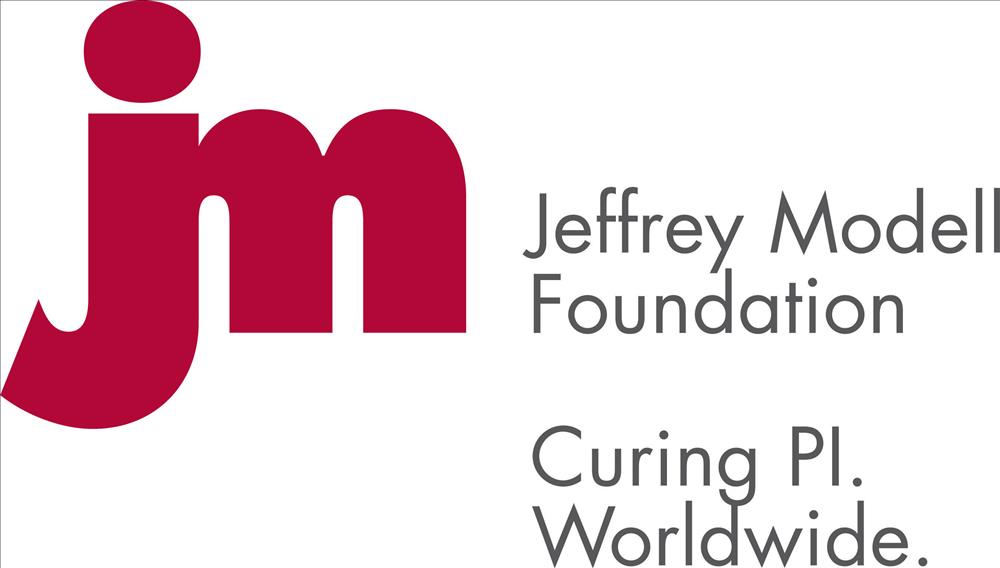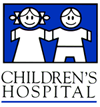JEFFREY MODELL DIAGNOSTIC CENTER
FOR PRIMARY IMMUNODEFICIENCIES
Patient FAQs:
Q: What is Primary Immunodeficiency?
A:
When a defect in the immune system is inherited (carried through the genes), it is
called primary, or inherited, immune deficiency. There are over 100 forms of Primary
Immunodeficiency, ranging widely in severity. Together, they affect more people than
leukemia and lymphoma combined. Primary Immunodeficiency often presents itself in
the form of "ordinary" infections. Physicians sometimes treat the infections while
missing the underlying cause, allowing the illnesses to recur, and leaving the patient
vulnerable to vital organ damage, physical disability, and even death. Families struggling
with immunodeficiency often do not know where to turn for help. Social, emotional,
and financial burdens can often be overwhelming. The problems presented in inherited
immunodeficiency disease have challenged researchers and immunologists to reach improved
diagnoses, treatments, and new therapies. Promising results in this area of immunology
are also yielding benefits for victims of cancer, AIDS, autoimmunity, cystic fibrosis,
and a wide range of pulmonary and allergic conditions.
Q: How is Primary Immunodeficiency diagnosed?
A: Correct diagnosis begins with awareness of the 10 Warning Signs. Once the condition is suspected, doctors can order blood tests and screenings to
evaluate the function of the infection-fighting cells of the immune system.
Because Primary Immunodeficiency is genetic in nature, blood-relations of patients
are often examined. Of course, tests should be ordered as soon as Primary Immunodeficiency
is suspected, so that treatment may begin quickly if a problem is present. Sometimes
even an unborn fetus can be tested for a specific disease.
Q: What are the signs and symptoms of having a Primary Immunodeficiency disease?
A: There are a number of different signs and symptoms of a Primary Immunodeficiency
disease. Although it varies somewhat from individual to individual and disorder to
disorder, there are some signs and symptoms that occur commonly in many of the disorders.
Perhaps the most common problem that patients with a PI disease have is increased
susceptibility to infection. PI patients have too many, and often recurrent, infections.
They may have recurrent ear infections (otitis), recurrent pneumonia, recurrent bronchitis,
recurrent sinusitis or recurrent skin infections.
Less commonly, immunodeficient patients may have abscesses of their internal organs,
such as the liver, or infections of their blood; however, the common theme is that
they have more infections than they or their doctor believes is appropriate.
Not every patient with a PI disease presents with recurrent infections. In some patients,
the first infection is serious enough to render the possibility of a PI disease. Moreover,
there are certain infections caused by germs that only afflict PI patients, therefore
the type of infection itself may serve as a red flag for PI disease.
Patients with Primary Immunodeficiency diseases may also present with a variety of
autoimmune or rheumatologic problems. In some cases, the rheumatic disorder can take
the form of systemic lupus erythematosis or rheumatoid arthritis and involve many
organs and tissues. However, the rheumatic disorder may also only affect one organ
and take the form of an isolated arthritis, kidney disease, thyroid disease, low platelet
counts in the blood, or anemia.
Furthermore, gastrointestinal (digestive) problems may occur in some patients with
a Primary Immunodeficiency disease. Patients may have excessive cramping, loss of
appetite, nausea and diarrhea. In some patients, the gastrointestinal problems can
be the result of an infection of the intestines - in others, they may be a reflection
of an autoimmune or rheumatic disorder.
Q: How can Primary Immunodeficiency be treated?
A: Once a diagnosis is established, much can be done for immunodeficient patients. At
a minimum, the recurring infections can be treated with low or moderate doses of appropriate
antibiotics. These can help prevent permanent damage to the lungs and bronchial tubes,
thus promoting the patient's long-term survival while improving the quality of life.
A more basic therapy is to supply, when appropriate, the gammaglobulin that, in some
diseases, the body cannot make on its own. Such immunoglobulin therapy is now accepted
for a range of Primary Immunodeficiency diseases. Other new therapies, including advanced
treatments such as the interleukins, PEG-ADA, and gamma interferon can help in some
cases. Bone marrow transplants may also be appropriate in some cases.
Q: Is it possible to outgrow a Primary Immune Deficiency disease?
A: Primary Immunodeficiencies are a diverse group of disorders that predisposes patients
to develop recurrent infections. There are several forms. All of the forms may involve
one or more parts of the immune system. These parts include the neutrophil, complement,
cellular (T-cell driven) and humoral (B-cell driven) components. Patients who have
neutrophil, complement and T-cell disorder rarely outgrow their immunodeficiency.
Some T-cell disorders like DiGeorge Syndrome may increase their T-cell numbers as
they progress in age. This is often associated with improving T-cell functions.
The most common immune deficiency that seems to resolve with age is transient hypogammaglobulinemia.
These patients develop symptoms at approximately six months of age. This is about
the time when the maternal antibodies are diminishing in the infant's circulation.
At this point, the infant may not be able to completely maintain his/her immunoglobulins
on his/her own. Infections may occur during this time. Serum immunoglobulins in the
infant may ultimately reach normal levels at four to six years of age. Other immunodeficiencies,
such as IgA deficiency, may also resolve with age.
Q: How long will a primary immunodeficiency disease stay within a family's gene pool?
A: Genes may be passed on to any of our offspring, but how they are passed on, and to
which children, depends on the way the gene is inherited and expressed. Usually, a
specific gene is only passed on to some of the children, but not all. If the gene
for a Primary Immunodeficiency disease is passed on from parent to child, it may then
be passed on from that child to some of their children, and so on and so on. In each
generation there is some chance that the gene will be passed on. Therefore, a gene
for a Primary Immunodeficiency disease, like any other gene, can stay in a family's
gene pool for many generations.
Q: Should a person with a Primary Immunodeficiency have genetic testing done? If
so, what kind of tests and when should they be performed?
A: Many of the genetic defects that cause Primary Immunodeficiency have been identified
in the past decade. These discoveries have allowed immunologists to confirm the proper
diagnosis of Primary Immunodeficiency, to understand how these diseases develop, and
to learn more about how the immune system fights infections and cancers.
Although, most of the PI diseases are genetically determined and therefore, inherited,
some are not. For the majority of patients who do have an inherited form of PI, there
are several reasons why genetic testing should be done.
1. Genetic testing can confirm the diagnosis of Primary Immunodeficiency, which will
allow the patient's immunologist to provide adequate treatment and anticipate possible
complications and difficulties in the future. This is particularly important when
a patient does not have the typical signs and symptoms of their disease. Because many
PI diseases resemble each other, genetic testing can reveal the true disease state
of the patient.
2. Identification of the genetic defect may allow physicians to determine how the
disease is inherited and to diagnose and initiate treatment of the patient's affected
family members before recurrent infections and other complications develop. Genetic
testing may also allow physicians to better predict Primary Immunodeficiency before
a child is born (prenatal diagnosis) so that treatment can be initiated soon after
birth.
3. Genetic testing helps immunologists learn more about the immune system, how it
works normally, and what goes wrong in disease.
The type of testing may depend on the type of PI disease and is usually performed
on a small blood sample. Genetic testing should be done as soon as possible so that
the diagnosis of Primary Immunodeficiency may be confirmed, appropriate treatment
started, and affected family members identified and diagnosed before symptoms develop
or worsen.
Q: If Primary Immune Deficiency diseases are genetic, or congenital, why is it that
some of these defects are diagnosed in adults?
A: It is possible that these defects are present all along, but not diagnosed due to
compensating immune functions that keep serious problems from developing earlier.
It is also possible that there is a slowly deteriorating immune function, genetically
determined, that does not become significant until later in life.
Q: What is it like to live with Primary Immunodeficiency?
A: There has never been more hope for people who are immunodeficient. All the same, families
struggling with any Primary Immunodeficiency disease face a number of difficulties;
for instance, the patient may have long periods of normal health, then suddenly be
struck by high fevers, pneumonia, or any of the other problems noted above. The illnesses
themselves are frightening, the lack of a definite diagnosis and treatment is frustrating,
and "waiting for the next attack" can turn even healthy periods into times of great
anxiety.
Lack of public awareness for PI diseases can make the family feel isolated in its
attempts to cope. Until recently, public sources of information have been scarce,
even for doctors. Also, many patients and parents find they cannot get teachers, principals,
employers, etc. to understand the nature of the medical problem at hand. Treatment
can be very costly, especially if IVIG treatment is involved. Lack of adequate insurance
can add to this problem.
Contact Us:
Jeffrey Modell Diagnostic Center for Primary Immunodeficiencies
c/o Children's Hospital
Department of Allergy/Immunology
200 Henry Clay Avenue
New Orleans, LA 70118
Phone: (504) 896-9589



